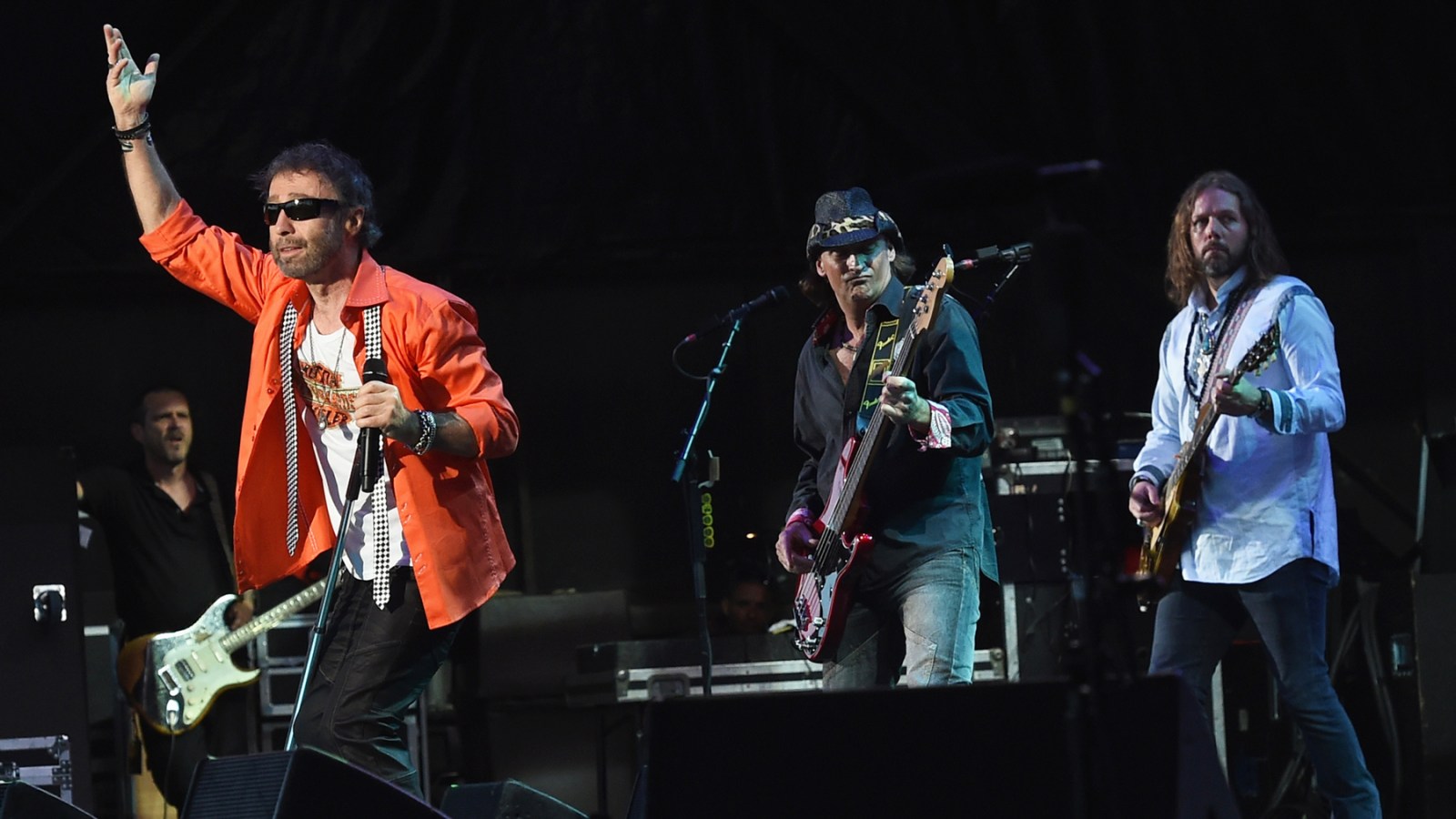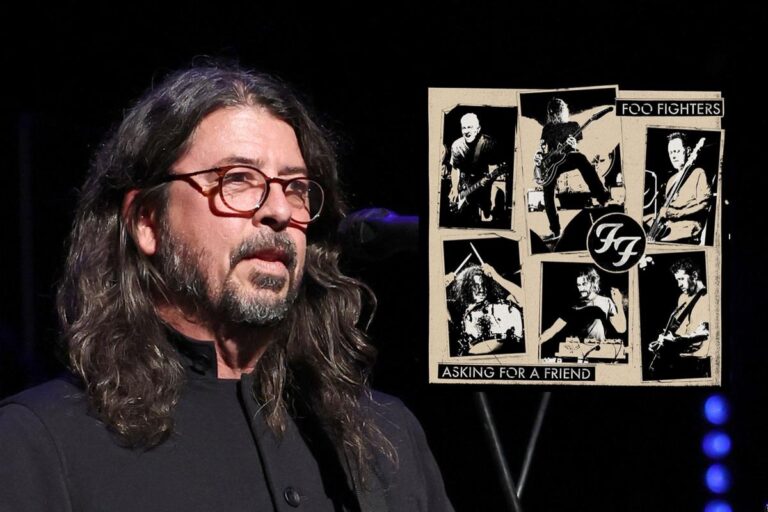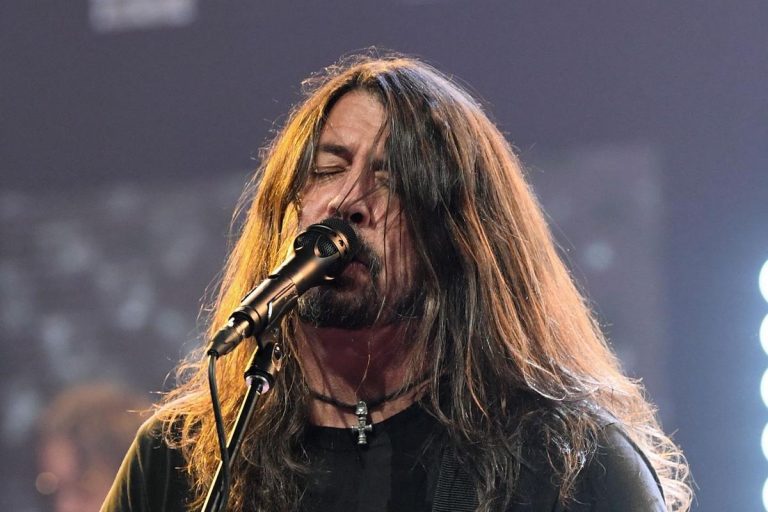The Rock & Roll Hall of Fame induction ceremony is less than three weeks away, and there’s still much we don’t know about the event: Is there a chance that OutKast will show up and perform for the first time in 11 years? Is there even a minuscule possibility that the White Stripes will appear together for the first time in 16 years? Who will sing with Soundgarden? How will Joe Cocker, Warren Zevon, Nicky Hopkins, and other deceased members of the new class be honored? And how exactly will Iggy Pop, Olivia Rodrigo, Elton John, David Letterman, Beck, and other special guests be utilized?
What we do know after chatting with Paul Rodgers is that Bad Company are almost certainly going to reunite for the event, marking their first live performance since 2019. It’s even more remarkable considering the fact that Rodgers has suffered 11 minor strokes and two major strokes over the past decade. As a result, he had to learn how to walk and talk again. It looked unlikely he’d ever sing again.
But Rodgers made a remarkable recovery; there wasn’t even a hint of a slur in his speaking voice throughout our Zoom interview. “He did Hyperbarics and MeRT [Magnetic Resonance Therapy] and we worked on his speech 18 hours a day,” Rodgers’ wife, Cynthia Kereluk, tells Rolling Stone. “It is his brain delay and brain fog that if you don’t know him, you wouldn’t know. But he is doing incredibly well. His older sister had a stroke a year ago while swimming. She’s now in a wheelchair and cannot walk. His father and mother both died due to strokes and heart issues. Not great genetics.”
He’s even returned to the recording studio to contribute vocal tracks to the new LP Can’t Get Enough: A Tribute to Bad Company, which features Slash, Def Leppard’s Joe Elliott and Phil Collen, the Struts, Blackberry Smoke, Hardy, Halestorm, and the Pretty Reckless.
We spoke with Rodgers and Kereluk about Bad Company’s Hall of Fame induction, the state of his health, the legacies of his departed Bad Company bandmates Mick Ralphs and Boz Burrell, his upcoming memoir, and his tenure as the frontman of Queen.
The Hall of Fame is just weeks away. How are you feeling?
Paul Rodgers: I feel good. I feel very good. My health is great. I’m off all the drugs, no statin or Ramipril. It’s good to get off that stuff and just eat healthy and do lots of exercise.
It’s a pretty amazing recovery.
Rodgers: Thank you very much. Well, Cynthia’s been wonderful, as well. She’s been a tower of strength throughout.
At your lowest points, did you worry that you wouldn’t get your voice back?
Rodgers: I wasn’t really thinking about my voice so much. The whole thing went out the window, so I wasn’t really talking or walking or doing anything, so it’s good to be back, I can tell you.
What was it like to relearn how to talk and walk again?
Rodgers: Well, it’s strange actually. You come across all kinds of little quirks and you forget little things that you used to remember, but anyway, it’s all good. I’ve done a few sessions since then. I did a B.B. King tribute for Joe Bonamassa.
Just listening to yourtalk now, you sound just like you used to. I’d never know you had a stroke.
Rodgers: I’ve spoken to people that are in wheelchairs after a stroke. It’s not a pretty thing to go through.
Cynthia Kereluk: Mick Ralphs was in bed for almost nine years. We couldn’t get him the help he needed. Unfortunately, we didn’t have medical control over him.
Rodgers: Fortunately I was able to tell him that we were being inducted. I said to Mick, “Do you remember when I called you up and I said, ‘Bad Company,’ and you dropped the phone?” He said, “Yeah. I remember that.” He said to me, “That’s the name of the band?” And I said, “No. It’s a song. I’m just writing a song called ‘Bad Company. ‘But you know what? It’s not a bad name for a band as well. Let’s go with that.” And now we’ve been inducted into the Rock & Roll Hall of Fame.” More power to him.
Kereluk: Mick said he was elated and it was fantastic.
Rodgers: Mick was a very strong part of it. I think Mick really was Bad Company, to be honest. He’s the driving force, I do believe, but that’s my thought.
Mick and Boz Burrell were such pivotal parts of that band and they both had such rich histories. It’s a shame that a lot of rock fans, especially in America, don’t know much about them.
Rodgers: And their playing was very rich, too. They were full of ideas at all times. I would bring a song along and they would just insert something that really, really worked, both of them.
I’m sure Boz would be thrilled about the Hall of Fame.
Rodgers: Yeah. Absolutely.
Kereluk: It would have been a good party with Boz there. He put the “Bad” in “Bad Company.”
They waited a long time to do this. Did you worry it would never happen?
Rodgers: I never worried at all, actually. I’m not really that concerned. I think it’s nice to have an award, and I think it’s nice for the fans because they’ve been lobbying for Bad Company to be inducted for years. It’s really good for them. It’s very satisfying.
You once said that rock music didn’t belong in a museum. Do you still feel that way?
Rodgers: It probably does nowadays. Back then it did not. I think it was very much alive, but now it’s called Classic Rock. It’s becomes something else slightly. We’re looking back on it now instead of looking ahead towards more of it.
Kereluk: With Paul being British, he has a different definition of museum than North Americans do. He thought a museum was cobwebs and things behind Plexiglass.
Rodgers: Butterflies pinned to a thing. That’s a museum for me and mummies? Oh, no, no, no.
You’re going to the induction, right?
Rodgers: I’m going to be there for sure, yeah. And I believe Simon is, too.
So the big question: Are you going to perform?
Rodgers: Well, we may well. We’ll see how we go.
Do you want to?
Rodgers: Well, they want us to, and I may. I haven’t decided what songs to sing at this point in time. But it could be “Rock ‘n’ Roll Fantasy.”
How did you think it’ll feel to stand next to Simon at the podium and accept the award?
Rodgers: I’m a little bit nervous. If we’ve got to make a speech, I’ll be quite honest., I’m not used to really making speeches of any nature, but I’ll be ok.
It’s a pretty amazing year with Bad Company, Joe Cocker, Soundgarden, Salt-N-Pepa, Nicky Hopkins. Are you fans of these people?
Rodgers: Yes. Joe Cocker particularly because I toured with him on the ARMS tour. He’s such a great guy. He said to me once, “Singing is sometimes like pushing a ten-ton truck up a very steep hill.” I said, “I know what you mean, Joe.” I’m sure he would love this. He was such a great singer.
What are your other future plans?
Rodgers: There’s a Bad Company tribute album coming out. I’m writing my memoir. That’s almost finished. And I have a musical project with a great Canadian musician, but I can’t say any more about that. I also do different sessions from time to time.
Kereluk: On March 2nd, the Adopt the Arts program, founded by Jane Lynch and Matt Sorum, they’re going to be honoring Paul in Palm Springs and also Geezer Butler from Black Sabbath. There’ll be an all-star band. So perhaps that might be another performance.
Do you miss touring? Do you miss the lifestyle?
Rodgers: Not at all.
Why?
Rodgers: Well, because it’s so hard. I hate to complain about it because it was a great time during its time, but I had enough travel. It got to the point where travel was more onerous than the joy I was getting from it. All those security queues and you get tighter and less and less space, more and more security. I just was like, “No, I’m good.”
I’m glad to be home. When I set out, I set out to survive, number one, to find peace of mind number two, and to make music while I did that. And that’s what I’ll continue doing. But I’ll do it from home. I do miss the crew and the camaraderie.
If you do perform at the Hall of Fame, might it be the final Bad Company performance ever?
Rodgers: I’ll never say never. I know that’s a James Bond movie. And hell froze over for the Eagles. You never say never.
But you can’t imagine an actual Bad Company tour where you go on the road?
Rodgers: I doubt it very much.
To move to a different topic, I’m curious to know how you look back on your time fronting Queen. That was an incredibly difficult assignment for any singer. Was it fun? Challenging?
Rodgers: It was all of the above for sure. It was fun and it was challenging. It was like learning a new language for me because I had to learn so many songs so quickly, and I don’t think I ever really did learn them properly. But that’s another story. But it was one of those things where they tried.
They hadn’t toured for a long time. They’d done one-off shows. They did one-off shows with Elton John, with George Michael. It was great people, but they didn’t tour together. And with myself, we actually got out on the road. Ostensibly, it was only supposed to be for a couple of shows in Europe for fun, but it turned into four years.
Eventually, I got to the point where I thought, “I’m not really the singer for Queen for the rest of my life,” so I’ve got to get back to my own music. And that’s why I left in the end. But it was an exciting time. We played in places I basically never heard of in Eastern Europe. Hundreds of thousands of people showed up. And they all knew all the songs. It was crazy.
I can’t imagine of the pressure of having to stand on stage in front of 50,000 people and sing “Bohemian Rhapsody.”
Kereluk: You don’t. You stand there and let them sing it because they did.
Rodgers: They did. They knew every breath of the song.
Tell me more about your memoir.
Rodgers: It’s almost finished.
When is it coming out?
Rodgers: Next year.
Kereluk: It’s being shopped around right now. We’ve got some meetings next week regarding it, but almost done. And I say that [writer] Chris Epting has been the perfect person to do this with.
What’s the process been like? Are any parts of your life just a blur
Rodgers: The whole thing actually is a blur. It’s like I blinked and here I am. Way back then when I was sitting in the classroom looking out over Middlesbrough, my hometown, right in the northeast of England. And I could see the ICI, which is a chemical works. I could see the steelworks, and I could see the shipyards.
My teacher at the time said, “Take a good look out there, class, because that’s where you are headed, all of you.” And I looked at it and I thought, “Oh my God, I guess the future is laid out for me.”
Then I heard somebody sing “Good Golly, Miss Molly” and a light switched on in my mind. I thought, “I’ve got to pursue that music and find out everything about it and where it came from.” And that’s what I did. And then I blinked a couple of times, and…here I am.
Kereluk: It was interesting because Paul didn’t think that he had much of a story, and then he started reminiscing and talking about things and he was like, “Wow, I guess I do have a story.” And I said, “You absolutely have a story.”
Rodgers: Chris was good like that because he prompted the conversation and had the right questions. And what happens is you don’t really think about these things that have happened, but when you’re prompted and you are given a lead, you remember and you go back in time. It’s good.
There have been a ton of rock biopics recently. Can you imagine one being made about your life?
Rodgers: Yeah. Well, when you die, they do tell me you get a movie of your life. Your whole life flashes before you in seconds.



